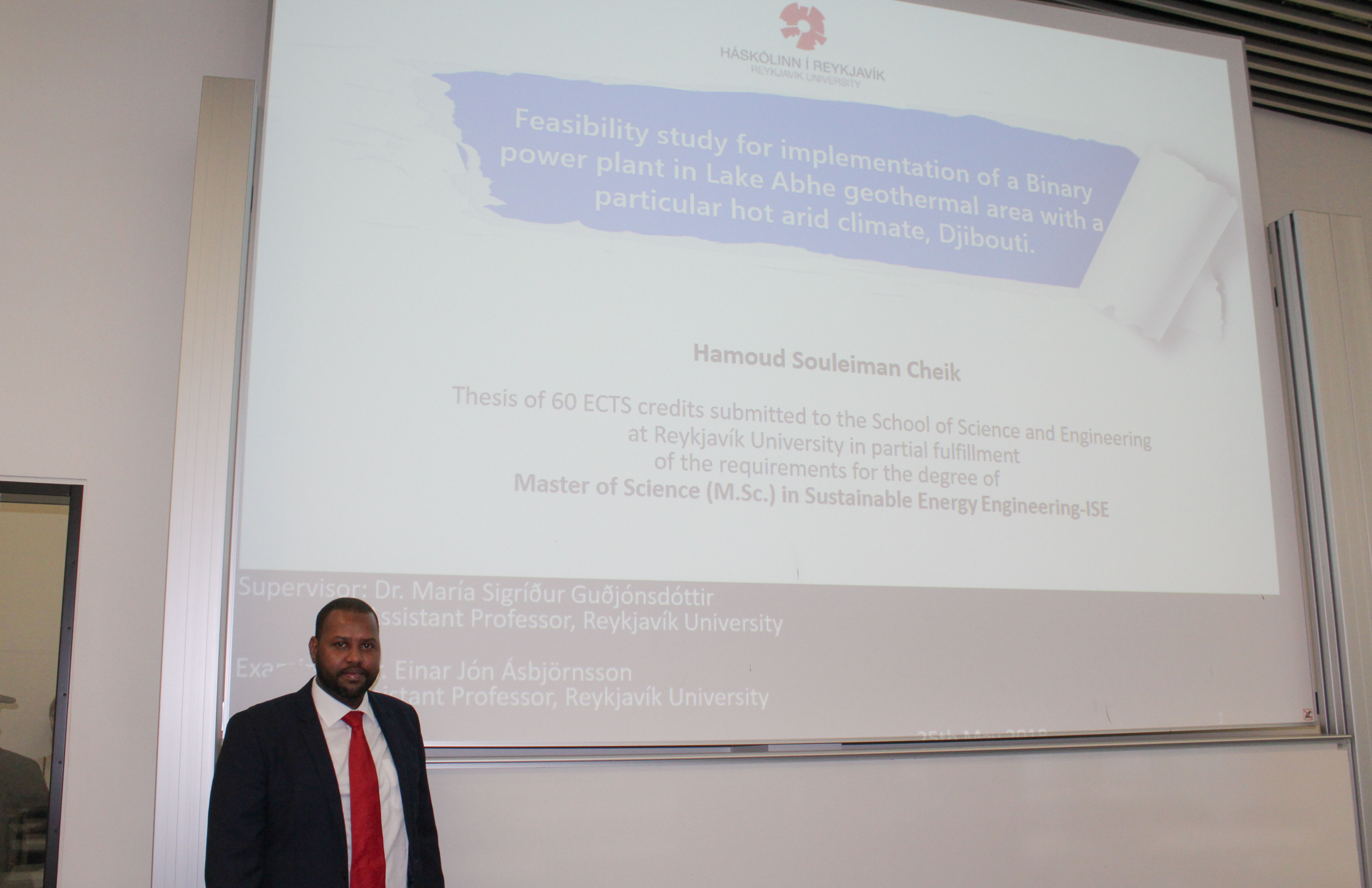MSc Thesis: Feasibility Study for Implementation of a Binary Power Plant in Lake Abhe Geothermal Area with a Particular Hot Arid Climate, Djibouti
Hamoud Cheik successfully defended his master's thesis
REYKJAVIK, June 20 - Hamoud Cheik, MSc in Sustainable Energy Engineering at ISE, has successfully defended his master's thesis project in assessing the feasibility for the implementation of a binary power plant in Lake Abhe Geothermal Area in Djibouti. His thesis project was supervised by María Sigríður Guðjónsdóttir from Reykjavik University.

Hamoud first introduced his study location, Lake Abhe, which is located in the Southwestern part of Djibouti, North Africa. With a hot, arid climate, Djibouti already possess several medium-enthalpy geothermal resources. Hamoud's thesis aim to identify how the resources available in Lake Abhe geothermal field could be best utilised, both technically and economically. In particular, Hamoud wanted to find out how to maximise the power output of the plant, given the hot and arid climate of the country.
For his thesis, Hamoud used the Engineering Equation Solver (EES) software to compare the performance of a standalone Organic Rankine Cycle (ORC) geothermal power plant with different cooling system and an ORC assisted with a parabolic trough solar concentrating collector field. He found that the water cooled condenser has higher net power output than the air cooled condenser, but has more negative environmental impact, especially on the water usage.
For his economic analysis, Hamoud studied the NPV and IRR results of these two systems. His results show that the solar-geothermal power plant shows higher power output, up to 21% higher than the air cooled condenser binary model. In terms of the NPV, this system also shows the highest NPV of US$9,900,000, IRR of 13%, and a payback period of roughly 18 years. To read more about Hamoud's study, please visit the following link .
Congratulations, Hamoud on an excellent thesis!
